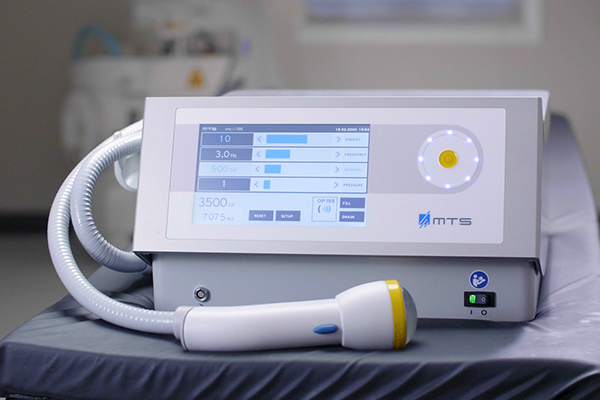How Does SoftWave Therapy Work?
SoftWave therapy harnesses the power of acoustic waves to stimulate the body’s natural healing mechanisms. It uses its patented technology of low-intensity, unfocused shockwaves to increase blood flow to a specific area, promote the production of growth factors necessary for healing, and accelerate tissue regeneration. This makes SoftWave therapy an attractive option for treating various conditions such as tendinitis, plantar fasciitis, chronic wounds, and other persistent pain conditions.
Where are Metal Implants Used?
Metal implants are commonly used in various orthopedic surgical procedures. These implants come in rods, screws, plates, or prosthetics, and are instrumental in treating fractures, spinal conditions, joint replacements, and more. They are designed to provide stability and support to the affected area, aiding in the healing process of fractures or spinal conditions. In addition, metal implants are typically made of biocompatible materials like titanium or stainless steel, ensuring their compatibility within the body.
Do Mental Implants Interfere with SoftWave Therapy?
Many patients with metal implants wonder if SoftWave therapy is compatible with their situation. The good news is that SoftWave therapy can be safely used for individuals with metal implants. The acoustic waves used in SoftWave therapy pass through the metal rods without causing any damage or interference. Therefore, individuals with metal rods can still benefit from SoftWave therapy.
Recommendations Before SoftWave Treatment
SoftWave therapy, with its proven safety record, can be confidently administered to patients with metal implants. It is important to disclose any hardware or implants before starting SoftWave treatment to make sure patients have a tailored treatment catering to their condition.
It is also essential to seek guidance from qualified healthcare professionals who can provide personalized recommendations based on individual circumstances. These experts will assess factors such as the type and location of the metal implant, the specific condition being treated, and the patient’s overall health. By considering these factors, healthcare providers can determine the suitability of SoftWave therapy and offer tailored modifications or alternative treatment options as needed.
The goal is to ensure that each patient receives the most effective and beneficial SoftWave therapy experience possible.
Start Your Road To Recovery with SoftWave Therapy Today
SoftWave therapy offers a promising solution for individuals with metal implants seeking non-invasive and effective treatments for musculoskeletal conditions, chronic pain and wounds, as well as neuropathy. If you have metal rods and are considering SoftWave therapy, consult with our SoftWave healthcare providers for them to provide personalized advice based on your needs.
Schedule your first appointment with your nearest SoftWave therapy provider today.
Disclaimer: The information provided in this blog is for educational and informational purposes only and is not intended as a substitute for professional medical advice, diagnosis, or treatment. The content provided in this blog should not be used to diagnose or treat any health problems or illnesses. Always consult with a qualified healthcare professional before making any changes to your healthcare routine or treatment plan.




